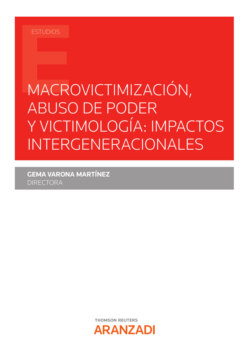Читать книгу Macrovictimización, abuso de poder y victimología: impactos intergeneracionales - Gema Varona Martínez - Страница 25
На сайте Литреса книга снята с продажи.
1.2. Assistance and support services to victims of terrorism
ОглавлениеWithin the EU, the need to strengthen European and national efforts to improve protection and assistance to victims of terrorism has been emphasized on several occasions118. While the 2002 Framework Decision on the fight against terrorism encourages Member States to adopt measures to ensure adequate support for victims of terrorism119 and their family120, it does not specify what these measures should be. There is therefore a major step forward with the 2017 Directive on combating terrorism121 that replaces the 2002 Framework Decision and extends its purpose to “measures of protection of, and support and assistance to, victims of terrorism» (article 1- Subject matter). Accordingly, the 2017 Directive contains a title V dedicated to the support and protection of victims of terrorism. For instance, article 24 asks Member States to ensure support services addressing the specific needs of victims of terrorism (emotional and psychological support, provision of any relevant information, assistance with compensation claims, etc.). The 2017 Directive also specifies that these services shall be confidential, free of charge and easily accessible (article 24.3).
On the short term, Member States are asked to improve support services in the framework of their national emergency-response infrastructures, by providing a comprehensive response to the needs of victims and their family members, including appropriate identification, communication, first aid, medical treatment and psychological/emotional support (article 24.4 et 24.5). On the longer term, the 2017 Directive specifies that Member States shall ensure that victims of terrorism have access to legal aid and effective protection measures in the course of criminal proceedings, where the risks of intimidation and retaliation require to protect their dignity and physical integrity (article 25).
Finally, the European Parliament Resolution of 12 December 2018 on findings and recommendations of the Special Committee on Terrorism122 provides that Members States must protect, recognise, support and compensate victims of terrorism, who should be at the center of the fight against terrorism123. It also “calls on the Commission to put forward a legislative proposal on the victims of terrorism that responds effectively to victims’ needs in the short and long term”124. In this respect, the Parliament notes that terrorism may have particularly severe psychological consequences for victims who should therefore benefit from effective psychological/emotional support on the short, medium and long term125. On the short term, Member States are asked to provide effective emergency assistance, including first aid, medical treatment, cash advances to help cover immediate expenses, certified childcare and home support, tax relief schemes and help with transport in the case of disability.
The right of information of the victims and their families is also stressed. While Member States are asked to provide all relevant information with a single point of contact126, the European Commission is invited to establish a single on-line platform in all EU languages covering the rights of and support for victims of terrorism127. On the longer term, Member States are invited to guarantee effective access to justice (including legal aid and protection against the risk of intimidation or retaliation), especially in the case of attacks involving transnational victims.
It should also be noted that, considering the ideological dimension of terrorism, specific attention is paid to the protection of dignity of victims. In this respect, Member States are invited “to set up legal mechanisms to criminalise the glorification of a specific act of terrorism as it humiliates the victims and causes secondary victimisation by damaging the victims’ dignity and recovery”128. The Parliament also calls on Member States to forbid homages to those found guilty of terrorist activities and to protect victims against secondary victimisation arising from humiliation, harassment, fear or attacks by the social entourage of the aggressors129.
In order to ensure effective assistance to victims of large-scale terrorist attacks, the need to strengthen cooperation and coordination amongst Member States has been raised several times130. In this regard, the 2005 EU Counter-Terrorism Strategy131 stresses the benefits of resorting to the EU mutual assistance and coordination mechanisms used to deal with large-scale natural disasters.
Besides cooperation in crisis situations, the EU encourages Member States to cooperate in the establishment of assistance systems for victims of terrorist acts. For instance, the 2017 Directive on combating terrorism132 asks Member States to strengthen cooperation in order to guarantee adequate assistance to victims of terrorism, in particular for those who reside in another Member State than the one where the terrorist act was committed.
In order to facilitate such coordination/cooperation, the European Parliament Resolution of 12 December 2018 on findings and recommendations of the Special Committee on Terrorism133 calls on the Commission to establish an EU Coordination Centre for victims of terrorism (CCVT), which would ensure adequate crisis support and coordinated assistance to victims of terrorism, in particular for transnational victims (exchange of knowledge, protocols and best practices; setting-up of registers of victims of terrorism in Member States and at European level; public register of accredited victim support organisations, etc.)134. At national level, Member States are asked to improve their emergency-response infrastructures and support services, by strengthening the coordination between all relevant entities in view of offering a comprehensive response to the needs of victims of terrorism135.
